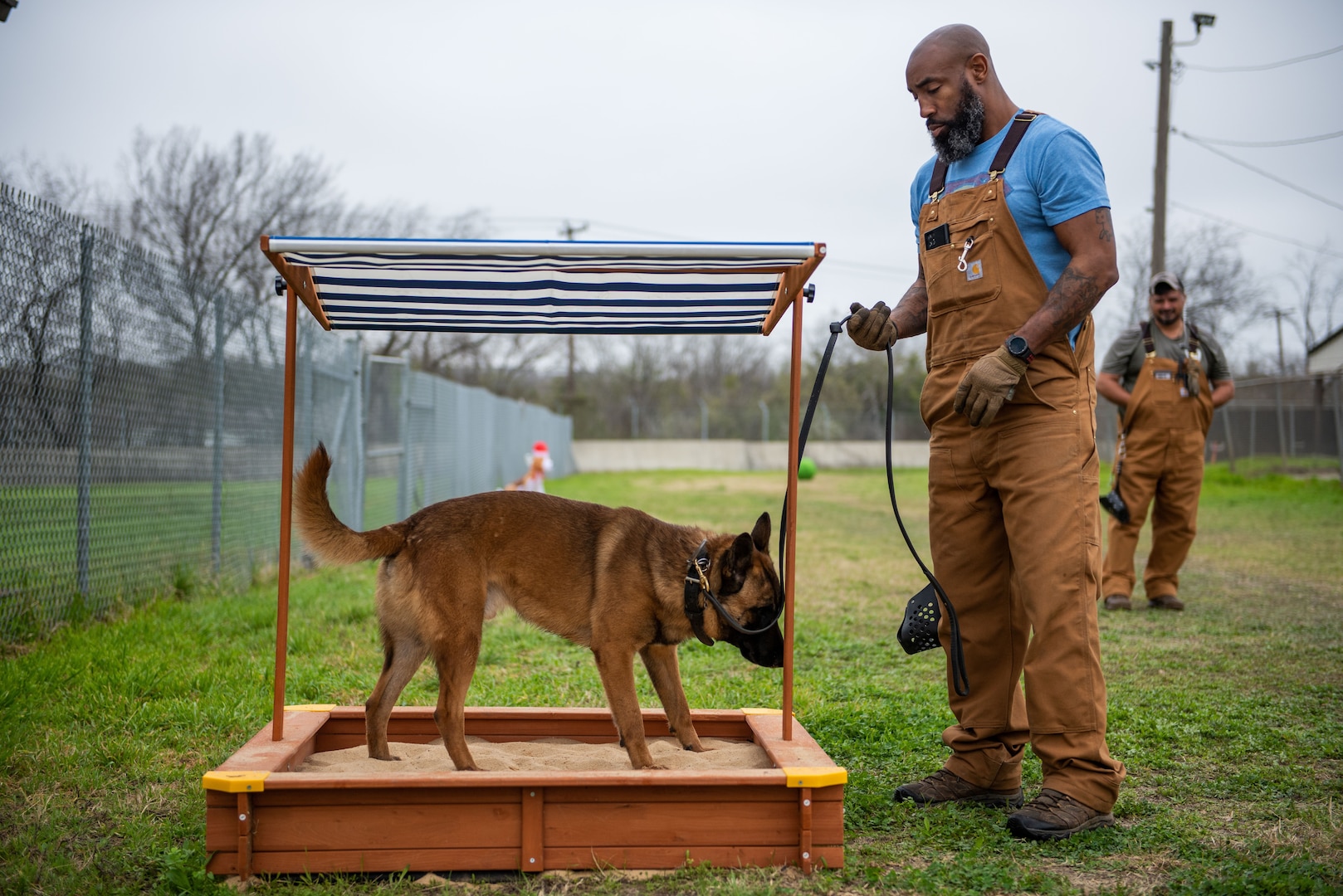Top Canine Educating Techniques for each Phase of Your Canine's Life
Reliable dog training is essential at every stage of a pet's life, as each phase provides special challenges and chances for development - Dog Training For Dogs. From the foundational bonding methods necessary for young puppies to the customized techniques needed for senior pet dogs, recognizing these crucial durations can significantly improve the human-animal bond. It is essential to identify that training needs to evolve together with a pet's development, making certain that approaches remain appropriate and reliable. What particular methods can be utilized to resolve the varying demands of your canine as it grows? The answer may surprise you.
Pup Training Essentials
Puppy training basics lay the foundation for a mannerly adult dog and entail a number of essential components that need to not be forgotten. The first phase of training focuses on developing a strong bond in between the young puppy and its owner, which is important for efficient communication. Socializing is vital; subjecting young puppies to various environments, individuals, and other animals helps them establish confidence and adaptability, reducing the likelihood of behavior problems later in life.
Fundamental commands, such as sit, stay, and come, form the structure of obedience training. Making use of favorable support methods, such as deals with and appreciation, motivates preferred habits and cultivates a favorable discovering experience. Uniformity in commands and training sessions is crucial, as young puppies thrive on regular and framework.
In addition, home training is a crucial element of puppy training. Developing a routine routine for restroom breaks and making use of marked locations can help lessen mishaps and promote good behaviors. On the whole, an all-around strategy to puppy training, incorporating socializing, obedience, and residence training, sets the stage for a well-adjusted adult pet dog, ensuring a harmonious partnership between the animal and its proprietor.
Teenage Behavior Administration
As young puppies grow into teenagers, their actions can transform significantly, commonly offering brand-new obstacles for proprietors. This developing phase, generally happening between six months and two years, is marked by increased energy levels, interest, and an expanding feeling of freedom. Understanding these changes is important for efficient habits management.
Adolescents may display rebellious tendencies, such as ignoring commands they previously mastered or engaging in destructive actions. Consistency in training continues to be extremely important; enhancing discovered habits through favorable support can assist counteract these challenges. Short, interesting training sessions are essential to keep their rate of interest and focus.

In addition, establishing a structured routine can substantially boost an adolescent pet dog's complacency. Normal exercise is important to channel their power positively, minimizing the possibility of unwanted behaviors. By using these strategies, proprietors can efficiently navigate the intricacies of teenage actions, fostering a well-adjusted, delighted canine friend.
Grown-up Pet Dog Obedience Methods

Positive reinforcement continues to be an essential strategy; gratifying good habits with treats, appreciation, or play encourages compliance. Uniformity is essential; the same commands and benefits must be made use of by all family members to stay clear of complication.
Incorporating training right into day-to-day regimens can also work. For example, method commands throughout strolls or dish times, permitting training to blend flawlessly into day-to-day life. Engaging in structured activities, like dexterity programs or obedience classes, can better boost a dog's skills while offering valuable socializing opportunities.
It is necessary to acknowledge that adult dogs may additionally show stubbornness or complacency. Readjusting training methods to preserve their passion, such as differing incentives or introducing new commands, can aid receive inspiration. Generally, a continuous commitment to obedience training will certainly promote a mannerly and balanced adult dog.
Elderly Pet Dog Adaptation Strategies
Identifying the special requirements of senior pets is essential for guaranteeing their comfort and health. As pets age, they might experience a decrease in wheelchair, vision, and cognitive function, necessitating customized adjustment methods.
First, take into consideration changing the living atmosphere. Guarantee that the home is safe and easily accessible; remove barriers and provide non-slip read more surfaces to avoid falls. Furthermore, consider using ramps or steps to aid them access their preferred spaces.
Second of all, exercise needs to be adapted to represent decreased endurance and joint health (Dog Training For Dogs). Involve in shorter, extra regular strolls, and incorporate mild activities like swimming, which can be advantageous for arthritic joints
Furthermore, psychological stimulation stays essential. Usage simple challenge playthings or participate in scent work to maintain their minds sharp, while avoiding frustrating jobs that might irritate them.
Finally, normal vet check-ups are vital to check wellness changes and adjust care routines accordingly. By executing these adaptation methods, you can improve the lifestyle for your elderly pet dog, guaranteeing they age with dignity and easily.
Lifelong Discovering and Enrichment
While pets of every ages profit from discovering and psychological stimulation, lifelong enrichment is particularly essential for maintaining cognitive health and psychological health in both elderly and younger canines. Engaging activities not only enhance a dog's quality of life but likewise strengthen these details the bond between the dog and its proprietor.
Enrichment can take numerous kinds, consisting of interactive playthings, problem feeders, and scent job, which stimulate a dog's senses and encourage problem-solving. Routine training sessions, incorporating new commands or techniques, keeps their minds sharp and promotes a sense of achievement. Socialization with various other dogs and individuals is equally vital, as it aids stop behavioral concerns and promotes adaptability.
Moreover, integrating exercise into a dog's regimen is vital for overall wellness. Activities like dexterity training, fetch, or long strolls offer both psychological and physical excitement, guaranteeing pets stay happy and engaged.
Lastly, take into consideration varying the setting by introducing brand-new places for playdates or walks. This adjustment can reignite a dog's inquisitiveness and interest for expedition. Lifelong learning and enrichment not just add to a fulfilling life yet likewise advertise a harmonious partnership with your canine buddy.
Final Thought
Effective dog training techniques evolve throughout a pet's life, dealing with the special requirements of each developing stage. Highlighting routine mental stimulation, socialization, and physical exercise cultivates a well balanced and fulfilling life for dogs.
Effective canine training is necessary at every phase of a pet's life, as each stage provides special difficulties and chances for growth.Puppy training fundamentals lay the groundwork for a well-behaved adult canine and involve several essential components that ought to not be ignored. Generally, an all-around method to puppy training, integrating house, socialization, and obedience training, sets the stage for a well-adjusted adult pet dog, get redirected here making certain a harmonious relationship between the animal and its owner.
Numerous canine owners may discover that adult pet dogs, while usually even more secure in behavior than their adolescent counterparts, still require consistent training to maintain obedience and excellent manners.Effective dog training techniques develop throughout a pet's life, resolving the distinct demands of each developmental phase.